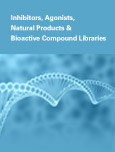Request The Product List ofADCs and PROTACs
ADCs and PROTACs
Proteolysis targeting chimera (PROTAC) technology, the recruitment of E3 ubiquitin ligases to induce the degradation of a protein target, is rapidly impacting chemical biology, as well as modern drug development.
PROTAC has emerged as a novel drug discovery strategy with the potential to offer therapeutic interventions not achievable with existing approaches.
PROTAC-induced protein degradation has yielded impressive preliminary efficacy in a limited number of cellular and in vivo systems but its broader utility and application in a clinical setting is yet to be tested.
The flexibility of the approach is also being steadily expanded by the use of new ubiquitin E3 ligases. While most non-peptidic Protacs have used the E3 ligases VHL and cereblon, more recent reports have shown greater use of members of the IAP family of ligases. Mdm2 may also be a suitable ligase but has so far attracted fewer disclosures.
Between the choices of E3 ligase ligand, the target-binding ligand and both the identity and attachment positions of the linker, there are a number of opportunities to design both very good, and very bad, Protacs in much the same way as with traditional small molecule medicinal chemistry.
PROTAC is now poised to answer some of its most critical questions to see if these novel scientific concepts can indeed translate to agents which deliver real clinical benefit and unprecedented medicine opportunities.
References:
1. Zengerle M, et al. Selective Small Molecule Induced Degradation of the BET Bromodomain Protein BRD4. ACS Chem Biol. 2015 Aug 21;10(8):1770-7.
2. Bondeson DP, et al. Catalytic in vivo protein knockdown by small-molecule PROTACs. Nat Chem Biol. 2015 Aug;11(8):611-7.
3. Churcher I. Protac-induced Protein Degradation in Drug Discovery: Breaking the Rules-or Just Making New Ones?. J Med Chem. 2017 Nov 16. doi: 10.1021/acs.jmedchem.7b01272.
4. Ottis P, et al. Assessing Different E3 Ligases for Small Molecule Induced Protein Ubiquitination and Degradation. ACS Chem Biol. 2017 Oct 20;12(10):2570-2578.
5. Raina K, et al. PROTAC-induced BET protein degradation as a therapy for castration-resistant prostate cancer. Proc Natl Acad Sci U S A. 2016 Jun 28;113(26):7124-9.













